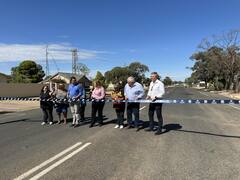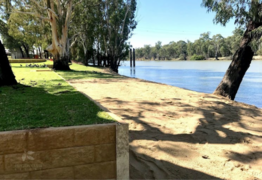NSW Police warn against online name and shame
Kimberly Grabham
17 March 2025, 10:00 PM

It's something which feels like common sense to many - if someone does something, commits a crime, then 'name and shame'.
You see it so often on social media - the call to clarify who was the culprit.
However, Riverina police have issued a warning to local businesses that publicly sharing CCTV footage of alleged criminal activity on social media platforms could potentially jeopardise future legal proceedings.
The increasing trend of individuals and businesses using social media platforms to publicise alleged criminal activity captured on surveillance footage has ignited a complex debate, raising significant ethical and legal concerns.
While some view these posts as a justifiable means of deterring crime and potentially identifying perpetrators within communities, law enforcement and legal experts are cautioning against the practice, highlighting potential negative repercussions for future legal proceedings and individual rights.
One primary area of concern revolves around the potential to compromise ongoing investigations and court cases.
The dissemination of sensitive information or images related to an alleged crime online could inadvertently influence potential jurors or introduce information that would be inadmissible in court, possibly leading to the derailment of justice.
Law enforcement agencies encourage the public to report crimes directly to them rather than taking matters into their own hands online.
Furthermore, the public identification of individuals as alleged criminals before they have been convicted in a court of law raises serious ethical questions related to the presumption of innocence.
Such actions can lead to public shaming and reputational damage for individuals who may not be guilty.
The risk of misidentification is also substantial, potentially exposing individuals and page administrators to legal action for defamation, stalking, or harassment.
Legal precedents highlight the significant financial penalties associated with online defamation.
Experts warn that this form of online activity can be considered digital vigilantism, which, while sometimes stemming from a desire to enhance community safety, carries considerable risks.
The accessibility of technology, including artificial intelligence, also introduces the possibility of manipulated evidence, further increasing the risk of misidentification.
Community-run online forums dedicated to sharing information about local crime face the challenge of balancing the desire for public awareness with the need to prevent the spread of inflammatory or defamatory content.
While some administrators implement measures to mitigate these risks, the inherent nature of social media platforms makes complete control difficult.
Ultimately, while the impulse to address local crime through online platforms may be understandable, authorities and legal professionals advise against publicising unverified accusations and images.
They emphasise the importance of adhering to due process and allowing law enforcement to conduct investigations without the potential for online interference, thereby safeguarding both the integrity of the legal system and the rights of all individuals.
Whether you perceive it as right or wrong, think of this; the legal system is there for a reason, and your putting these things on social media may actually impede or stop people from getting the justice they de
NEWS
SPORT
RURAL
COMMUNITY
JOBS
VISIT HAY
VISIT BALRANALD
VISIT OUTBACK NSW
EVENTS






















